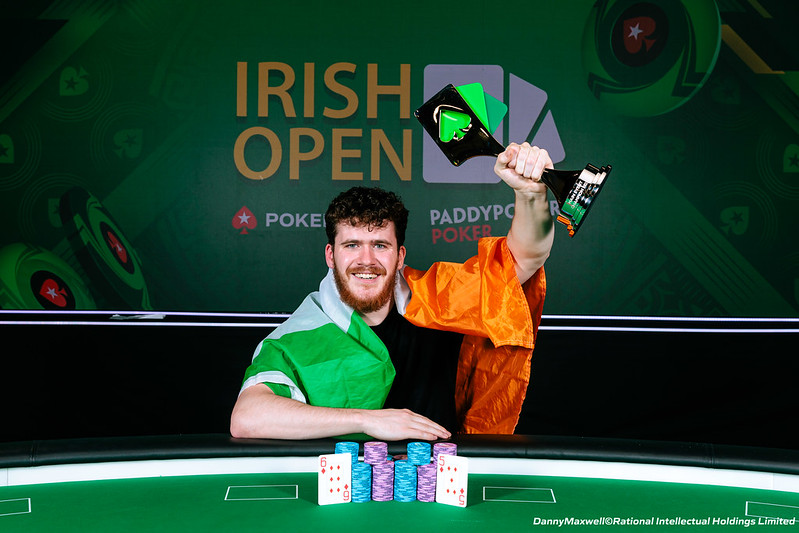The Gambling Advertising Landscape in Ontario
Ontario is the first province to launch a regulated online gambling market in Canada. This was big news when it launched in April 2022. As you can imagine, gambling advertising has ramped up, and with it, a host of questions and concerns that we will explore here.
What is Legal in Ontario?
Bill C-218, known as The Safe and Regulated Sports Betting Act was passed. This means that single-game wagering is allowed throughout the country, and it is now up to the provinces to regulate this. Ontario is the first to launch a fully regulated market and open the industry to private companies. Before this Ontario online casinos were technically operating on the gray market.
Now the market is open to private gambling companies, there has been a noticeable surge in Ontario gambling ads. Marketing for sports betting platforms is common, and most Canadians will frequently see banner ads, physical billboards and TV ads.
Companies have invested a lot of money into this advertising, and even have celebrities on board to be their brand ambassadors, resulting in huge (and controversial) million-dollar deals. However, some gambling advertising laws must be followed, which we will explore below.
Gambling Advertising Laws in Ontario
Since April 2022, gambling seems to be thriving with 47% of Ontario adults reporting they’ve done some form of online gambling. This huge statistic has naturally attracted some criticism about the sheer volume of advertising from private gambling companies.
So, what is the legal situation regarding advertising gambling in Ontario? It’s important to point out that the provinces remain in charge of gambling advertising, not the federal government, and that regulations are still evolving and will likely change and adapt in the future.
One main restriction is that betting sites are not allowed to advertise bonuses, promotions or any kind of ‘inducements’. Only when a person is on the operator’s website can the bonus be promoted to them. This means Canadians will not see these incentives on TV, radio, digital media or on billboards.
However, there is no such regulation prohibiting famous faces from advertising for these companies. Unlike across the pond in the UK, where celebrities are banned from advertising gambling services, no such ban currently exists in Canada, and ads are frequently run with NHL superstars and during primetime TV hours.
Ontario Gambling Ads: How Companies Compete for Attention
Private gambling companies recognize the power of the above-mentioned celebrity endorsements and are spending billions to get well-known sports stars to advertise their services. Wayne Gretzky and Connor McDavid are brand ambassadors for BetMGM while Auston Matthews endorses Bet99. These endorsements range from banner ads and billboards to primetime TV ads.
Private gambling companies have even brought YouTube stars and influencers on board in what seems to be a bid to appeal to the younger Gen Z. PointsBet Canada, for example, has launched ad campaigns featuring Canadian YouTube creators, The Trailer Park Boys.
Toronto-based company theScore launched a campaign to promote its betting app through a promo video featuring stars such as Gerry Dee, Susie Essman and Rex Lee. This video has been shown on TV, radio and social media channels, plus billboard ads featuring the three celebrities will also appear.
Criticisms of Gambling Advertising in Ontario
With such a large influx of gambling advertising, the debate has turned to criticism about the negative impact all these ads could have. Many public health experts are speaking out and voicing their concern over the impact this could have on people, particularly the young and vulnerable.
Critics have pointed out that they take issue not just with the sheer quantity but also with the quality of the ads being shown. There are claims that this surge in gambling marketing is leading to ad fatigue. This is the term for when ads are seen so often that people stop paying attention to them and become bored or even start hating them.
Data from Ipsos finds that nearly half of Canadians (48%) say they agree (17% strongly; 31% somewhat) that the amount and volume of advertising is excessive and needs to be cut back. Many agree that there should be limits on the amount or placement of these ads or limits on both.
It’s also been shown, through social media analysis, that there has been a rise in negative social media posts about sports betting advertising since this regulated online gambling market launched in Ontario. Many Canadians are reporting that the sports betting ads are not enjoyable and they should be more regionally specific.
Another concern is companies using celebrities to promote their services and the impact this can have on young people. It’s not a surprise that when a product or service is endorsed by a celebrity, the chances of people, particularly young people, wanting to try it are increased. Some are worried that these sports betting celebrity brand ambassadors could encourage young people to turn to gambling, get into debt and develop addiction problems.
Many people who struggle with gambling addiction and those who work helping them recover have also been speaking out about the negative impacts these adverts are having on the recovery process. They suggest that because of the easy accessibility of gambling, partly due to technology, there will be more people developing a problem with gambling.
As it stands, Canada’s media regulator, the Canadian Radio-television and Communications Commission (CRTC), has banned celebrity role models for children from appearing in alcohol ads, but there are no such restrictions for Ontario gambling ads. Perhaps this is something that will come in the future?
Potential Changes to the Gambling Advertising Regulations
As the gambling advertising landscape is still relatively new and currently evolving, there have been many calls for changes to the regulations, with critics often looking to other countries with long-established regulated online gambling markets for examples. Here are some of the changes people are calling for:
Restrictions on When Ads Can be Shown
Currently, there are no such restrictions on timing, with sports betting ads being shown during primetime TV. Critics are calling for stricter rules to curb this influx of ads, with one suggestion being to only allow advertising after a certain time of night when it’s assumed that young children will be in bed.
Many are saying that sports betting operators shouldn’t be allowed to promote gambling during NHL games, for example, especially considering families often watch these games with their young children.
Ban on Celebrity Endorsements
Brian Masse, an NDP member of parliament, is already calling for tighter restrictions on professional athletes endorsing sportsbooks. He was actually part of helping draft the initial bill to allow sports betting, but now voices concern about the impact these people being the face of gambling companies could have on children.
It’s no secret that when people see their favourite celebrity or influencer promoting something, the product is viewed in a more favourable light. The rise of influencers also plays into this, as people often feel they are more relatable and trustworthy, and when they are advertising gambling products this raises a further ethical dilemma.
As previously mentioned, the UK has already banned such endorsements featuring popular celebrities and influencers. This move was designed to protect children from the betting market, and the focus was on banning anyone that would have a strong appeal to young people. There are calls for Canada to follow suit.
Treat Gambling Advertising like Tobacco
Others are suggesting that gambling advertising should be treated like tobacco, where no advertising is allowed anywhere, or even cannabis or alcohol. The Tobacco and Vaping Products Act restricts tobacco ads. Some critics are pointing out that gambling problems can destroy families, in a similar way to alcohol addiction, so advertising should be as strictly regulated.
The Future of the Gambling Advertising Landscape in Canada
We hope you’ve enjoyed reading about the new gambling advertising landscape in Ontario. The gambling industry shows no sign of slowing down anytime soon, and because Ontario gambling ads from private companies are so new, it’s likely that it will take time for regulation to catch up.




